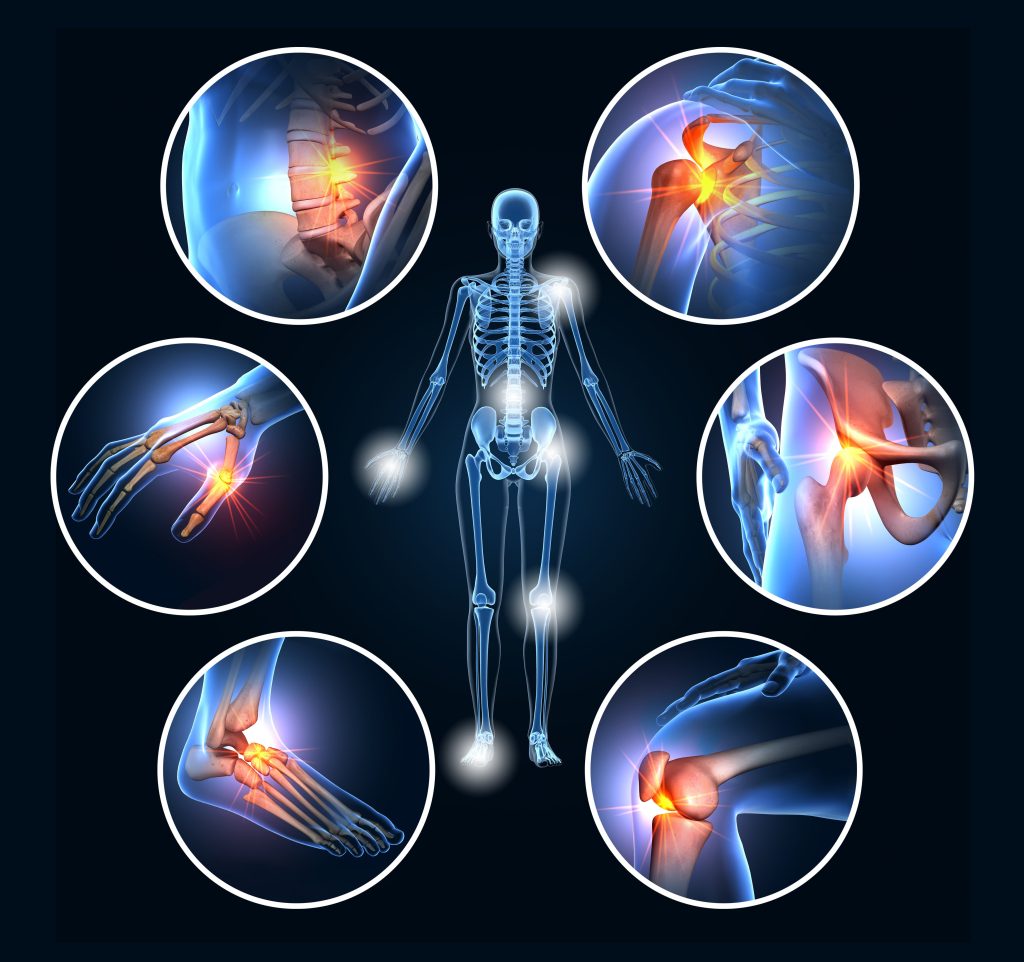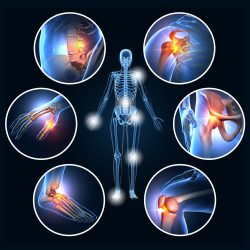Arthritis is a common and often painful condition that affects millions of people worldwide. While surgical interventions are sometimes necessary, there are numerous non-invasive approaches to effectively manage arthritis pain. In this blog post, we will explore various strategies, including dietary choices, exercise, sleep, and specific supplements like turmeric, MSM, quercetin, boswellia, and bromelain, that can help you alleviate arthritis pain and improve your quality of life.

1. A Balanced Diet for Arthritis Management
Maintaining a healthy diet is crucial in managing arthritis pain. Consider the following dietary recommendations:
a. Anti-Inflammatory Foods:
- Incorporate foods rich in omega-3 fatty acids, such as fatty fish (salmon, mackerel, and sardines), chia seeds, and flaxseeds.
- Load up on fruits and vegetables, particularly those with vibrant colors, as they are rich in antioxidants that combat inflammation.
- Use olive oil, which contains heart-healthy monounsaturated fats and has anti-inflammatory properties.
b. Avoid Trigger Foods:
- Limit or avoid foods that may exacerbate arthritis pain, including processed and red meats, sugary snacks, and fried foods.
- Reduce your consumption of refined carbohydrates, like white bread and sugary cereals, which can increase inflammation.
2. Stay Active with Arthritis-Friendly Exercises
Exercise is a key component in managing arthritis pain. These low-impact activities can help you maintain joint flexibility and muscle strength:
a. Swimming: Water’s buoyancy supports your body, reducing stress on joints while providing an effective full-body workout.
b. Yoga: Gentle yoga poses can help increase joint mobility and relieve pain while improving balance and reducing stress.
c. Tai Chi: This low-impact martial art enhances flexibility and balance, making it an ideal option for arthritis sufferers.
d. Walking: A simple and accessible exercise, walking helps to improve cardiovascular health and joint function.
3. The Importance of Quality Sleep
Adequate rest is essential for managing arthritis pain, as it promotes tissue repair and reduces inflammation. To improve your sleep quality:
a. Create a Sleep Routine: Go to bed and wake up at the same time every day, even on weekends, to regulate your body’s internal clock.
b. Invest in a Comfortable Mattress: A supportive and comfortable mattress can significantly improve your sleep quality, especially if you have joint pain.
c. Manage Stress: Techniques like meditation and deep breathing can help you relax and ease the stress that may be exacerbating arthritis symptoms.
4. Supplements for Arthritis Pain
Certain supplements have shown promise in managing arthritis pain:
a. Turmeric: This spice contains curcumin, a powerful anti-inflammatory compound. Consider turmeric supplements or include it in your cooking.
b. MSM (Methylsulfonylmethane): MSM is known for its potential in reducing joint pain and inflammation. Consult with a healthcare professional before using supplements.
c. Quercetin: This antioxidant found in fruits and vegetables may help reduce inflammation and provide pain relief.
d. Boswellia: An herbal supplement derived from the resin of the Boswellia tree, it has anti-inflammatory properties and may ease joint discomfort.
e. Bromelain: This enzyme, found in pineapples, may help reduce inflammation and improve joint function.
Managing arthritis pain effectively without surgery is possible through a holistic approach that includes dietary choices, appropriate exercise, quality sleep, and the incorporation of supplements like turmeric, MSM, quercetin, boswellia, and bromelain. By adopting these strategies, you can improve your quality of life and find relief from the discomfort associated with arthritis. Always remember to consult with a healthcare professional before making significant changes to your arthritis management plan.


